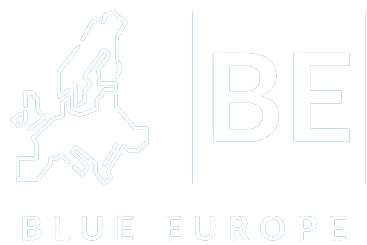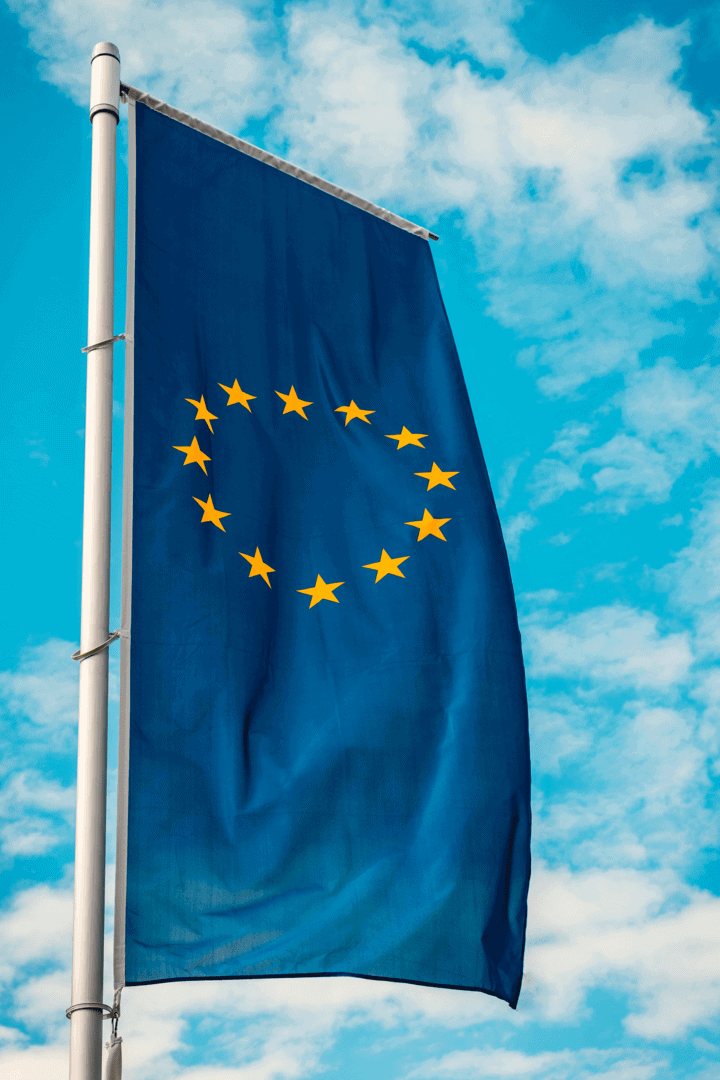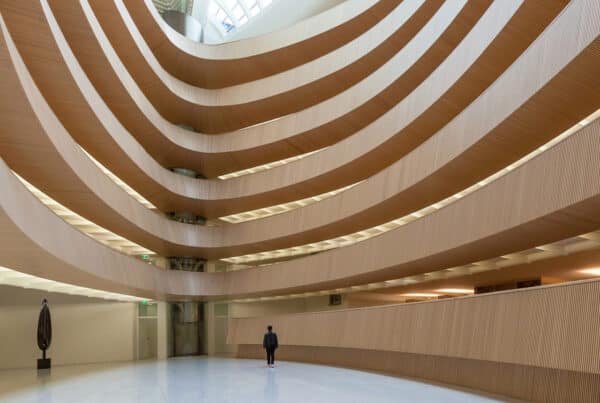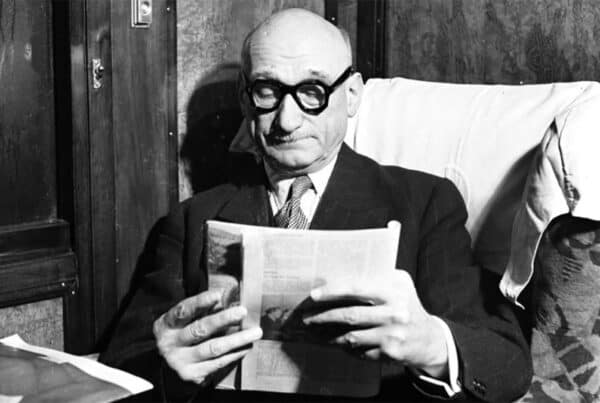Hello Mr Dorin, thank you for accepting this interview for Blue Europe. Could you please introduce yourself and explain what the Bretagne Pologne association is all about?
I am of Polish origin through my mother, so I have known Poland for a very long time. I was 9 years old when I went there for the first time. However, I understand Polish, but I don’t speak much Polish. Quite simply because I come from a generation where you had to speak French in France. The Polaks, the Italians, the Portuguese are a bit like our friends from the Maghreb today, the people were different so above all we had to avoid seeing them in the population, we had to speak French. My mother never taught me Polish, it’s a shame but that’s how it is. That’s a pity, but that’s the way it is.
I have always had relations with Poland in my professional career. In 89, when the Wall fell, I came into contact with Pierre Méhaignerie, at the time Minister and President of the General Council. I suggested that we could see together what we could do. Since I knew that he was close to Poland, that he wanted to do things with Poland. That’s how the Bretagne Pologne association was born, which at the time was called Ille-et-Vilaine Pologne. He was the first president, I became president after him, then I did a blank period due to my professional activities and I came back as president. Now I am not president again.
We started this association in 89. At the same time, I created a subsidiary in Poland which dealt with international relations consultancy to facilitate the establishment of French companies in Poland and then after the recruitment of Polish personnel on the spot.
In the years 98/99, the ambassador approached me and asked me if I wanted to become Honorary Consul of Poland here in Brittany.
These were the major steps very quickly. I am of Polish descent, in 57 I have seen Poland. I lived in Poland during the time of the communists, I know what it is like. And so after in 89 there was the creation of Brittany Poland and in 98 my appointment as honorary consul.
That’s it for me.
After Bretagne Pologne or Ille-et-Vilaine Pologne was created to develop links between Brittany and Poland. I gave Pierre Méhaignerie a presentation of two or three places he had been to and told him that I would choose Wielkopolska and its capital Poznan. For very practical reasons, it was at the time, and still is, one of the richest regions in Poland. It is very highly industrialized, very highly specialized in telecoms, as is Rennes. With a very large university like Rennes could have. That’s how it started.
We set up a number of twinning arrangements, meetings between Breton municipalities and municipalities in Wielkopolska. Today there are still about fifteen Franco-Polish twinning arrangements in the department of Ille-et-Vilaine.
Thanks to the General Council and Pierre Méhaignerie, Bretagne Pologne has had the financial and logistical means to develop many things. Contacts between high schools, colleges, between communes. Twinning and cooperation between different consular chambers, chambers of commerce and industry and chambers of agriculture have been set up. It is now in mute, Poland has joined the EU. People are making the relations they want. Let’s say that was the impulse. Today Bretagne Pologne main function is to put the twinning committees in Ille-et-Vilaine in touch with each other and make them work together, with the support of the Maison de la Bretagne in Poznan.
La Maison de la Bretagne in Poznan was established in 1993, still under the impetus of the County Council, with the aim of developing cultural, less commercial, more cultural and personal links so that Poles feel close to our region. So the region of Brittany is well known to our Polish friends from the Wielkopolska voivodship, and it continues to be so. There is the head of the House of Brittany a young person, Elżbieta. She has been there practically from the beginning. Previously deputy and now director of la Maison de la Bretagne. She does remarkable things on the spot. Language courses, dance classes, shows, lectures, library. It’s working well, at the moment it’s a bit embarrassed by the covid issue. It is really the flag of Brittany in Poland.
What exactly made you decide to move to Poland in the early 1990s?
I have always been oriented towards Poland. I used to go to Poland from the year 57, once every two years. We went to see the family. When I did my studies, I went to the ESCP in Paris, I did a dissertation on Franco-Polish trade relations, it was in 1968/1969, that’s very old.
Then I became the managing director of an SME here in Ille-et-Vilaine and I tried to see how you could buy steel products in Poland. I have always had this link with Poland. Until I set up my company, and in my company I set up what was at that time an office and later became a subsidiary in Poland. It was my origins and my knowledge of Poland that kept me going. I didn’t choose anything, I just continued.
I would like to come back to your role as Honorary Consul of Poland in France. What exactly does your role consist of?
An Honorary Consul is a person who is not a civil servant of the country he represents but a person X, not necessarily of Polish origin but who has shown a certain attachment and willingness to develop knowledge of Poland on the spot. If there is an honorary Polish consulate in Rennes it is because it was me.
What does the Honorary Consul of Poland do? It is important to know that each country has an organization that can be different. I am talking specifically about Poland. The honorary consul has no particular powers, I do not make any administrative documents. Consulates are involved in drawing up identity cards, passports, I do nothing at all. My role is a representative role here. So within this framework I facilitate, develop and encourage all the links that can exist or develop between Poland and France.
For consular matters, we organize a permanent office, with a consul general who comes from Paris. He does administrative documentation in Rennes. I simply organize. Two years ago, I also took part in the organization of the legislative elections with the creation of a polling station here in Rennes. It’s the same, I facilitated, found the place, organized but it was not me who was present for the realization of these elections. A representative of the embassy came, with Polish nationals present in Rennes. I maintain relations with the mayors, the prefecture, the regional council, the county council, all the political organizations, the local authority when the need arises.
What is the current dynamic between Ille-et-Vilaine and Wielkopolska?
There was a very strong craze in the 90s, 95, 98. It was the big start, with notably the very strong support of Ouest France, its president François Régis Hutin, whom I knew well, did many things for the development of these relations between Brittany and Poland. Quite simply by making a large number of articles, by going himself to Poland. By organizing lorry transports with a whole lot of things, medicines, clothes, typographical material etc. Before 89 and also after 89. It was this craze that took place.
Afterwards, as Poland entered the EU, no longer being an exotic country, being a country that was said to have fewer needs, we entered into more commonplace relations. Before, if you like, we were doing a good deed. Relations have been maintained, and now Brittany Poland is doing its job well.
I am no longer president, but I am still a member of the Board of Directors, I can see what I can do. The idea is to work together. The twinning committees have something to worry about, they are generally managed by people with white hair. It’s a problem, there has to be a transmission, people who want to take over. It’s complicated, all the more so as young people like you, today, when we talk to them about going abroad, they mention the United States, Australia, countries that are a little exotic.
Poland is no longer exotic at all, it’s more serious. First of all, it’s not exotic at all. Secondly, it’s not a country with an easy language to learn, a country with 38 million inhabitants, not very big, what can attract me there? There is all this context that makes it necessary to continue working.
The idea of Bretagne Pologne is to contribute in its own way to the development of the European spirit. You should know that alongside Bretagne Pologne, I am now co-president of the House of Europe in Rennes. For me it is a continuation of my experience of Poland in the East when I lived in the West, it was obvious to me that there was no difference between a Pole and a Frenchman. Poland had to join the EU one day. Even if today, there are some problems with the Polish government, which are not necessarily discussed in good manners, this will change because the Poles are much more Europhile than the French.
How do you envisage the evolution of relations between Brittany and Wielkopolska? On a cultural, political and economic level.
For me it will continue. Firstly, the Brittany region has signed a charter of cooperation with the Wielkopolska region. You have to see how it was structured at the beginning. The region works with the voivodship, the city of Poznan is twinned with the city of Rennes. The municipalities in the county are twinned with municipalities in the voivodship and municipalities around Poznan. When all this started, Poland was divided into 49 voivodships, now I think there are 19. The Ille-et-Vilaine county was connected to what was the former voivodship of Poznan and the towns around it.
Politically, the only thing I can say is that these links exist and that they have been transcribed in twinning charters, cooperation contracts. The Brittany region has only one or two cooperation agreements with regions in foreign countries, including the Wielkopolska voivodship.
On a cultural level, it is the twinning committees and the House of Brittany in Poland. We do
not have the equivalent of the Maison de la Bretagne here in Rennes. La Maison de la Bretagne is an entity present in Poland, it is the one that does a lot on the cultural level to make Breton culture known to our Polish friends. It goes on
On the economic level, I know that Pierre Méhaignerie’s dada was saying “but Mr. Dorin, are companies from Ille-et-Vilaine connected with companies around Poznan? I replied that the problem is not that, the problem is that a company present in Ille-et-Vilaine can work with any company present in Poland. In the same way, a company present in Poznan may want to work with any company present in France. You cannot work from department to department. So in economic terms, there are a number of groups, companies present in Poland, which have set up subsidiaries, which work with subcontractors or even sell in Poland. It continues to develop nicely.
Corentin Parisot





